While the fight for LGBTQ+ equality is still ongoing [1], the queer movement has had some massive wins over the past few decades. Of these victories, a good portion can be credited to the massive media efforts made by queer folks to spotlight the community. Thanks to televised LGBTQ+ representation on shows like Orange is the New Black [2] and RuPaul's Drag Race [3], and celebrity activists like Laverne Cox [4], the community has reached newer heights.
In honour of LGBTQ+ History Month, we've put together a list of 14 iconic LGBTQ+ pop culture touchstones throughout history. From the release of the queer classic Paris Is Burning, to more recent events involving industry shakers like Lil Nas X [5], read on to learn about some of the major pop culture moments that amplified the queer movement.
The Queen Spotlights the Queer Community in 1968
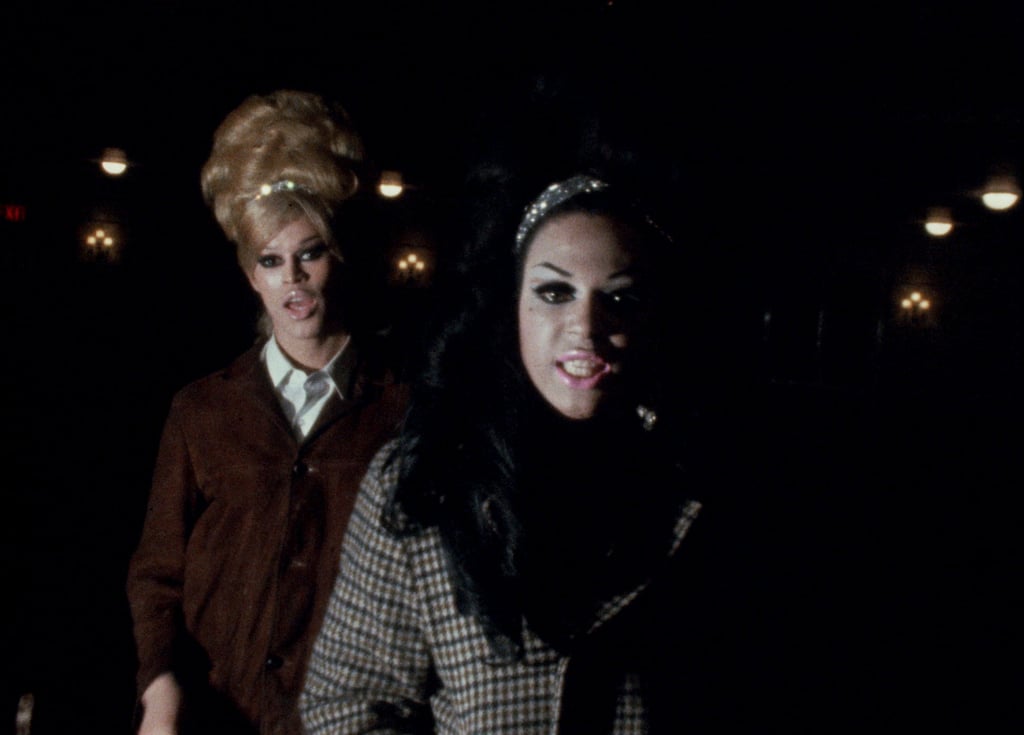
In the age before ballroom culture, when queer femme people were societal outcasts and dressing in drag was still illegal, it's actually quite remarkable that a documentary like Frank Simon's 1968 film The Queen was able to hit theatres at all. The Queen chronicles the Miss All-America Camp Beauty Contest at New York's Town Hall in 1967. The competition was made up of a flurry of queens from diverse pockets of America, battling for the crown under the mentorship of their collective drag mother Jack Doroshow, aka Flawless Sabrina.
The undisputed highlight of the film is when Crystal Labeija, founder of the House of Labeija, storms off in a fury after being announced as the contest's 3rd runner-up. But this moment gave us so much more than Crystal's iconic quips and reads. This incident was the catalyst that led to the creation of the ballroom scene, where Black and brown queer people formed their own spaces where they could celebrate themselves. That is what makes Crystal Labeija's legacy authentically iconic.
Paris Is Burning Offers Insight Into the Black and Latinx Ballroom Scene in 1991
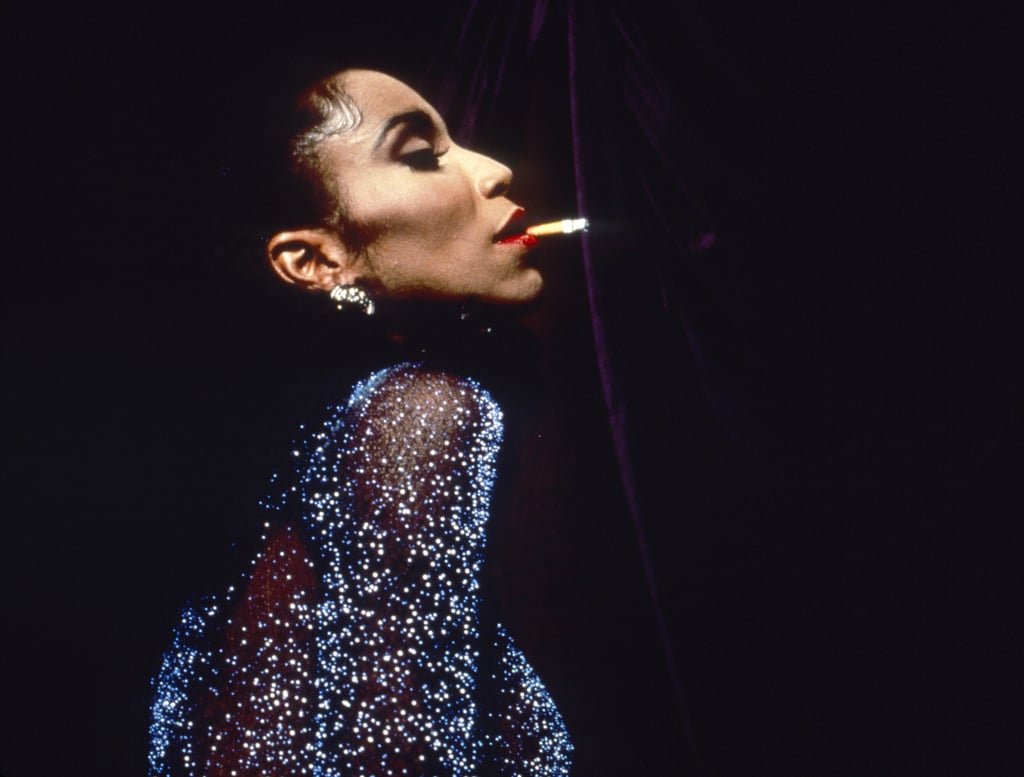
Jennie Livingston's 1991 documentary Paris is Burning paints an intimate portrait of the Black and Latinx queer folks that made up the Harlem ballroom scene. The doc offers insight into how members of the scene used these spaces as way to build up self-worth and community, things that they were denied by not only heteronormative society, but white and wealthy LGBTQ+ folks as well. In addition to its lasting legacy and timeless quotes, the film changed LGBTQIA+ cinema forever, paving the way for fictional TV Dramas like Pose and the competitive HBO Max reality series Legendary.
Angels in America Wins Big at the 1993 Tonys
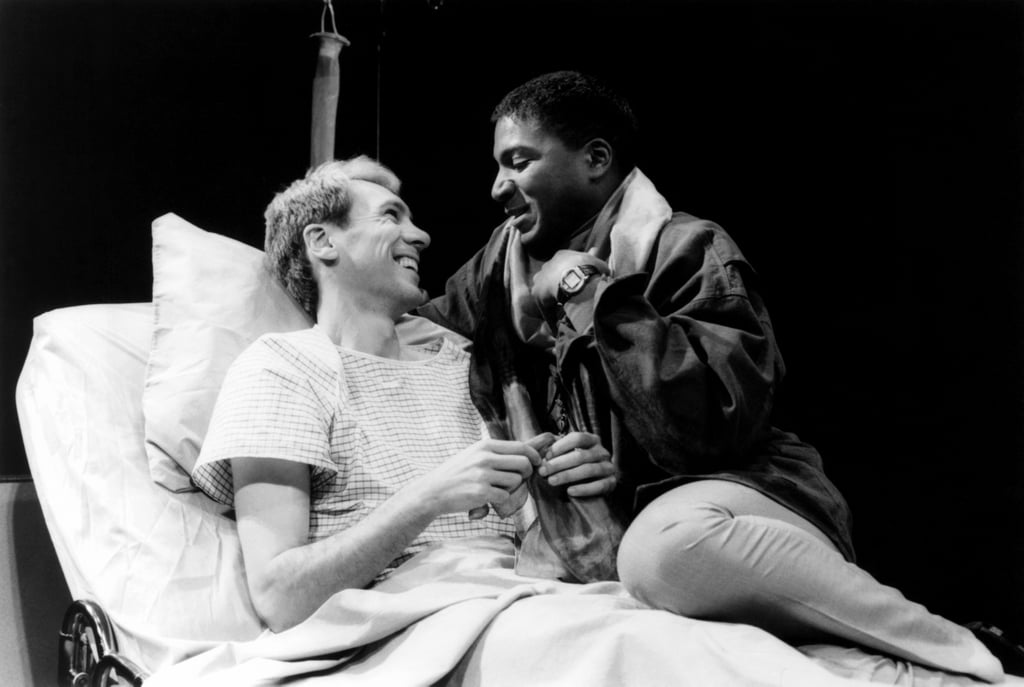
On May 4th, 1993, Tony Kushner's gay epic Angels in America premiered at the Walter Kerr Theatre on Broadway. Directed by George C. Wolfe, the production ran for 367 performances before closing on Dec. 4, 1994. The play follows the stories of a gay man who contracts HIV/AIDS after being abandoned by his lover, and a closeted mormon who struggles to keep his heterosexual marriage afloat.
The drama was nominated for nine Tony awards [6] and ended up winning four, including Best Play. As one of the first major pieces of queer entertainment to touch on the subject of HIV/AIDS, Angels in America forged the path for the future of how the subject was discussed in the media.
To Wong Foo, Thanks For Everything, Julie Newmar! Tops the Box Office Charts in 1995
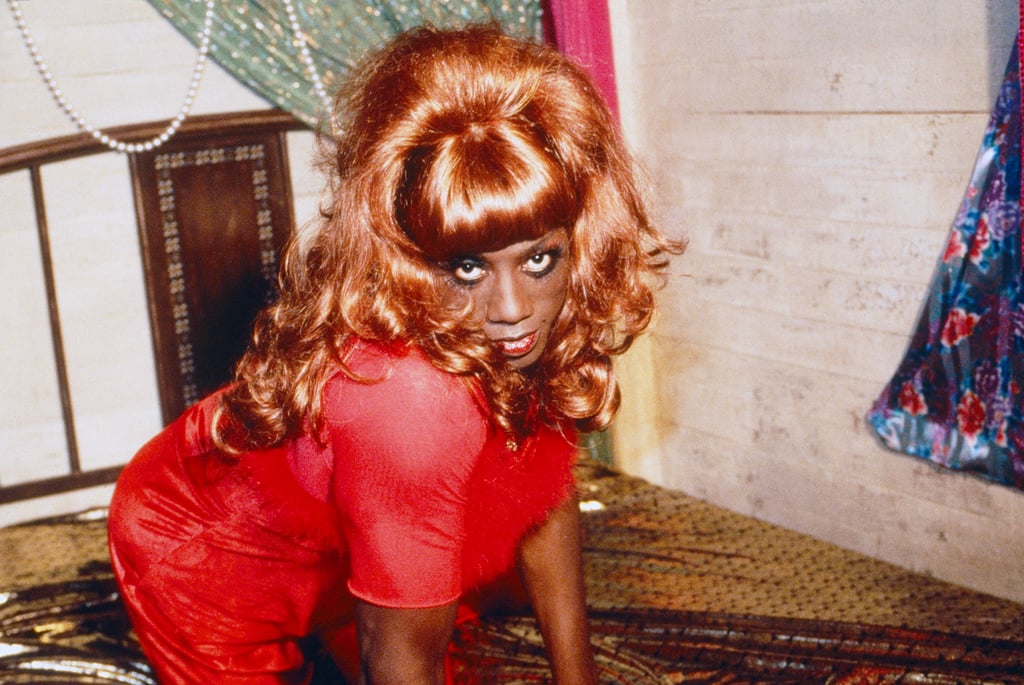
Starring Rupaul, Wesley Snipes, and Patrick Swayze, To Wong Foo, Thanks For Everything, Julie Newmar! is a comedy about a trio of drag queens who embark on a road trip to compete in a national pageant. However, when their car breaks down the queens find themselves stranded in a small town. Widely considered the American answer to The Adventures of Priscilla, Queen of the Desert [7], the comedy generated a lifetime box office gross revenue of US $47.8 million worldwide and was No. 1 at the box office in the U.S. its first two weeks in theatres.
While To Wong Foo didn't receive favourable reviews [8] at the time of its release, the film is widely celebrated today as one of the few pieces of queer media in the '90s where the Black and brown femme characters triumph in the film instead of being persecuted or killed off.
Ellen DeGeneres Comes Out in 1997
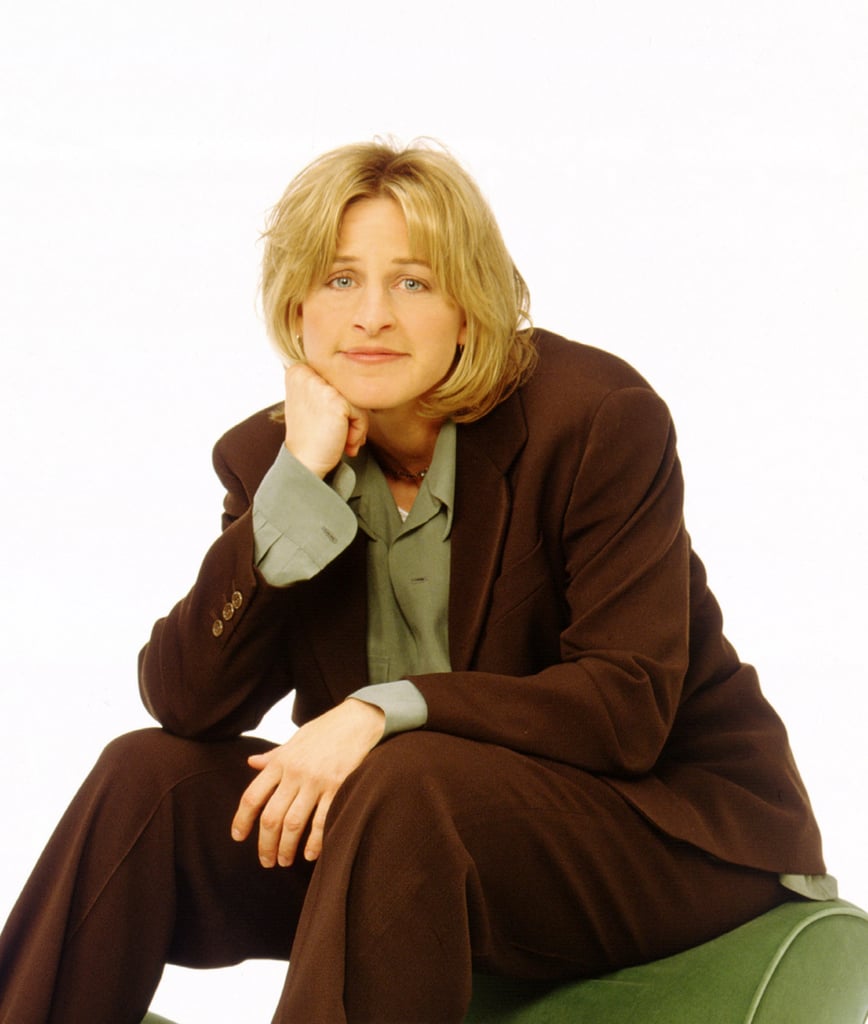
On April 14, 1997, Ellen DeGeneres [9] graced the cover of TIME Magazine, with a feature interview where she confirmed she was gay. Shortly after this interview, DeGeneres's character in her 90s sitcom, Ellen, also came out in an episode titled "The Puppy Episode." After these back-to-back moments, DeGeneres shook the media landscape for being one of the few outwardly gay public figures on national television. While DeGeneres is a controversial figure, it certainly cannot be denied that her very public coming out was a watershed moment for queer celebrities and visibility.
But I'm a Cheerleader Tackles Conversion Therapy in 1999
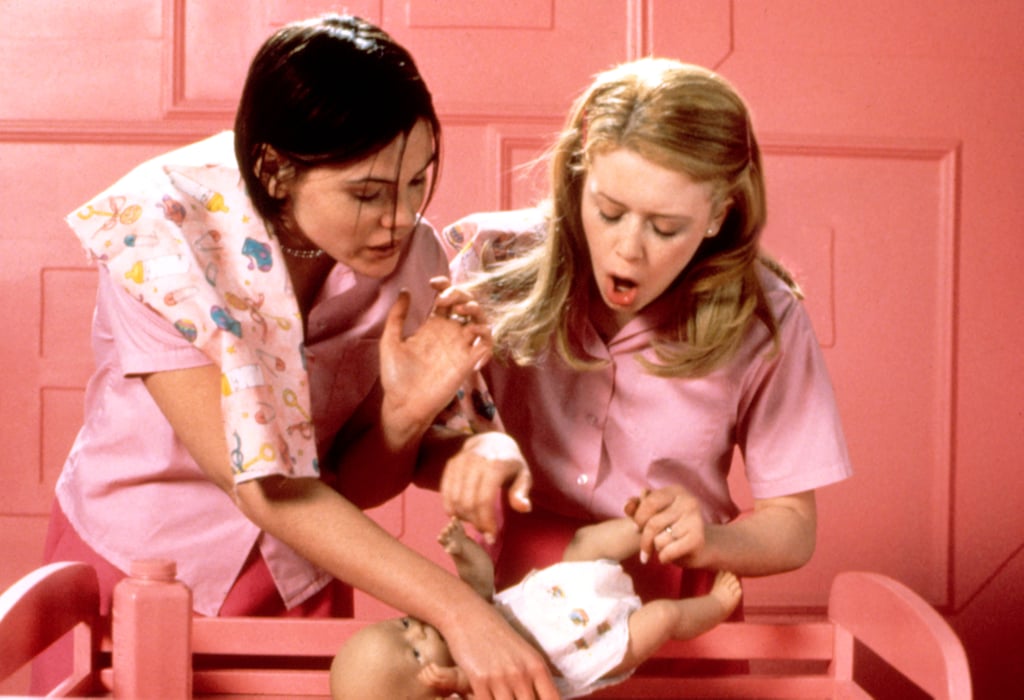
Starring Natasha Lyonne and Clea DuVall, Jamie Babbit's first feature-length film But I'm a Cheerleader was a crucial turning point for queer media. Babbit was unafraid to satirize and poke fun at the absurdity of gender roles, domesticity, and heteronormativity in the most whimsical way. Centreed on Megan (Natasha Lyonne), a queer teenager, the film follows her experience in conversion therapy. However, when she meets fellow campmate Graham (Clea DuVall), she starts to fall in love with her and learns to embrace her sexual identity. While the film is definitely campy, this piece of queer media illuminates the ineffectiveness of conversion therapy in a truly unique way.
Queer as Folk Breaks Down Barriers in 2000
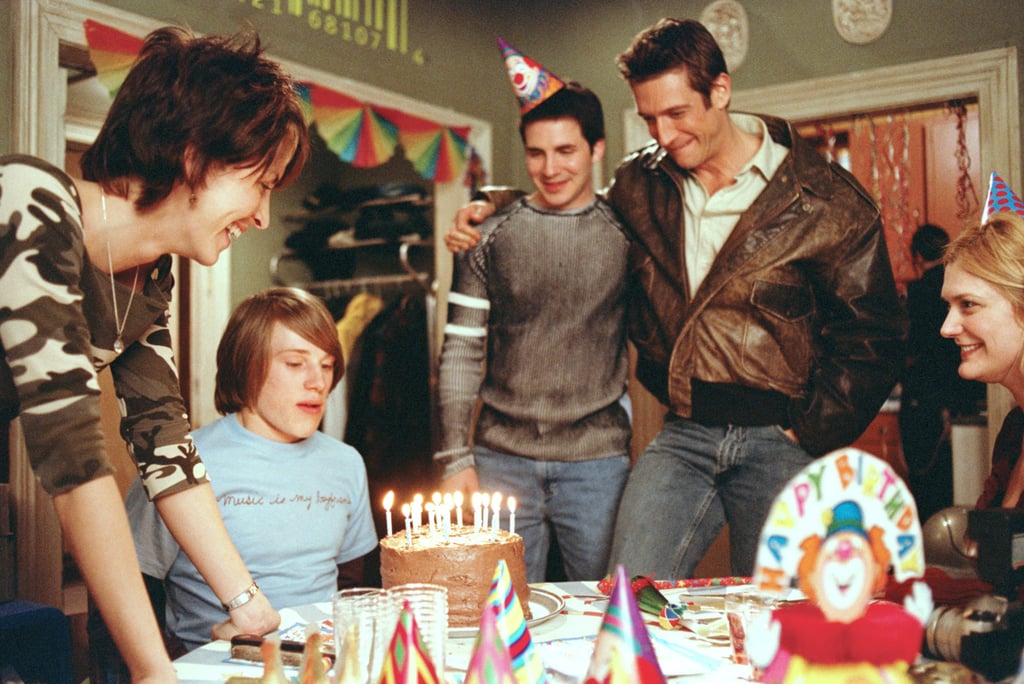
Queer As Folk has a tangled legacy. Originally a U.S. remake of the British series of the same name by Russell T. Davies, the early-2000s Showtime drama chronicled the lives of gay and lesbian folks living in Pittsburgh during the Bush era. A good chunk of the series is dated and flawed, especially the lack of diversity in casting and the wide age gap in one of the major relationships on the show. But there's no doubt that with its unflinching depictions of queer sex, drug use, and mental health, Queer As Folk broke down barriers and ushered in a new era of LGBTQIA+ representation on television.
The L Word Highlights Queer Women in 2004
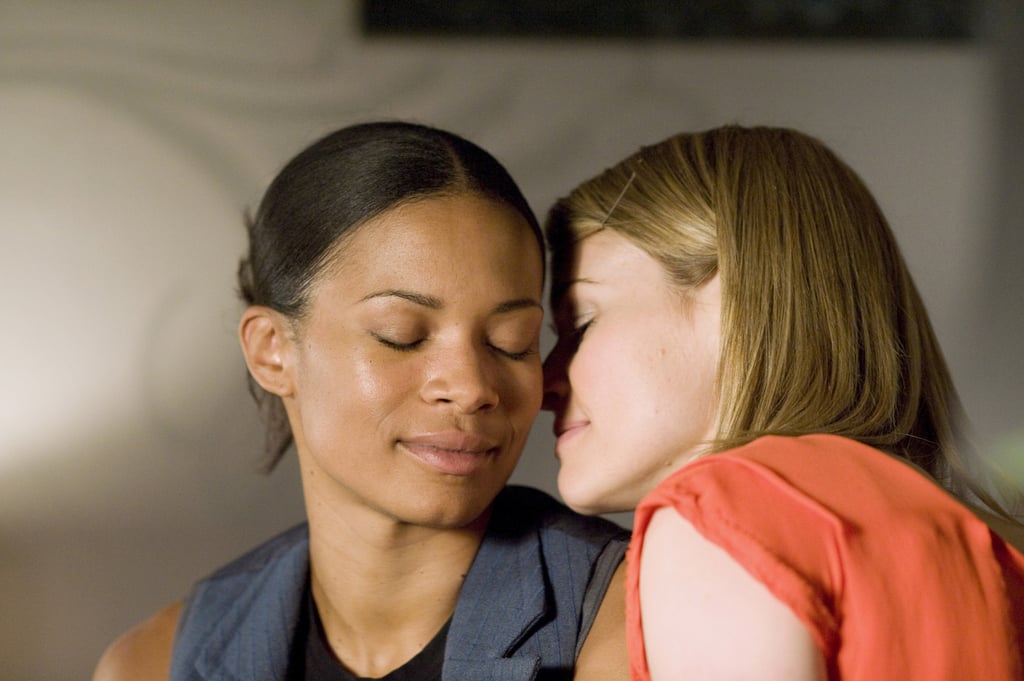
Originally airing on Showtime in 2004, The L Word followed the lives of a group of queer women living in West Hollywood, California. Like its predecessor Queer As Folk, the show had many flaws and there were a variety of missed opportunities in the representation department. Luckily, the popular series reboot, The L Word: Generation Q, is attempting to make amends for that.
Queer women rarely get to be in the limelight and are usually cast to the side or relegated to background characters in LGBTQIA+ media. So to see a show unapologetically putting queer women front and centre was a major step forward, paving the way for shows like Orange is the New Black [10], Wynonna Earp, and Gentleman Jack.
RuPaul’s Drag Race Redefines Reality Competition Television in 2009
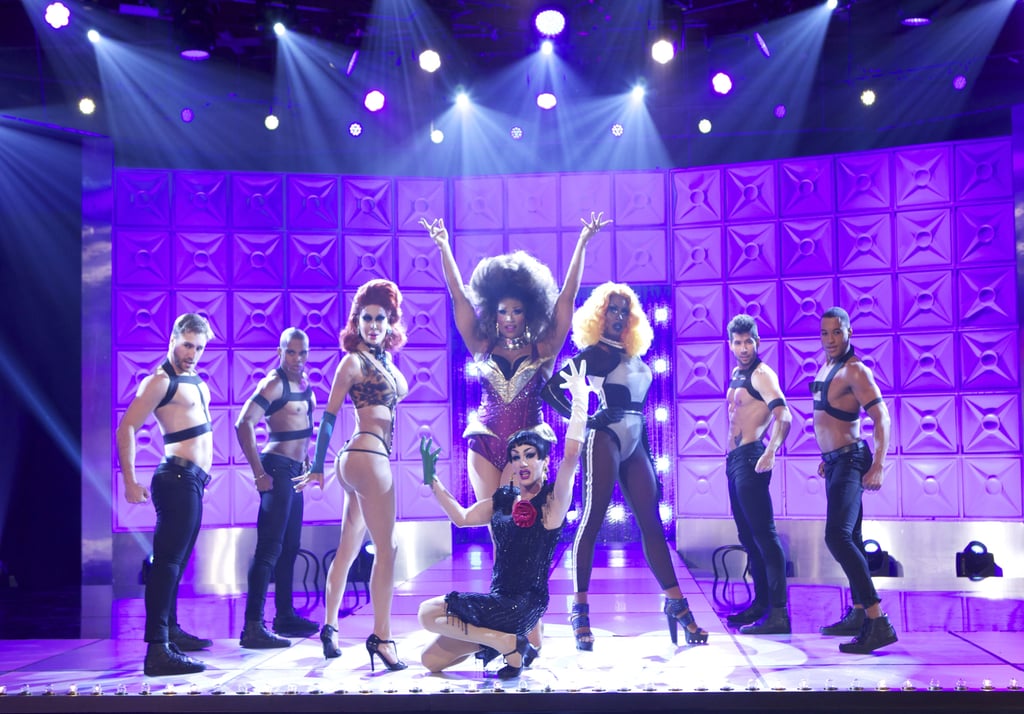
Start your engines! RuPaul's televised contest where drag queens from all over the world battle for the title of America's Next Drag Superstar has permeated the pop cultural zeitgeist like no other piece of queer media. The show's low-budget first season aired in 2009, and would soon turn into a massive franchise as the years progressed.
Thanks to the powerful celebrity empire built by RuPaul himself, drag, an art form that was once kept hidden away in queer bars and spaces, is now considered a viable career option. The show allows queer artists to showcase their talent to the world, and has kick-started the careers of legendary talents including Alaska, Peppermint, Trixie Mattel, Gottmik, and Bob the Drag Queen.
Laverne Cox and the Transgender Tipping Point of 2014
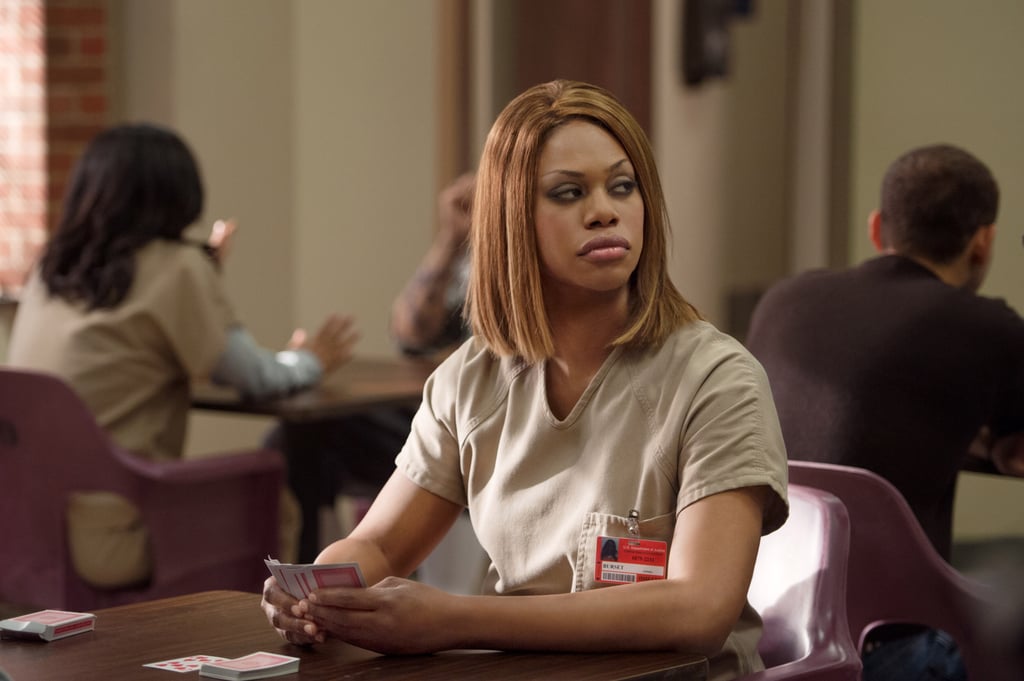
Looking back at the year 2014 only goes to show what a game-changer the year was for transgender visibility. Janet Mock published her best-selling memoir Redefining Realness, Laura Jane Grace's punk band Against Me! released their watershed album Transgender Dysphoria Blues, and actress Laverne Cox — who portrayed Sophia Burset in the Netflix series Orange is the New Black [11] — made history as the first transgender woman to snag a magazine cover when she was featured on the front of TIME magazine. While there is still much to be done in the department of legislative protection for trans and gender-nonconforming individuals, the rise in visibility was certainly well-worth celebrating at the time.
'Billions' Introduces TVs First Non-Binary Character in 2017
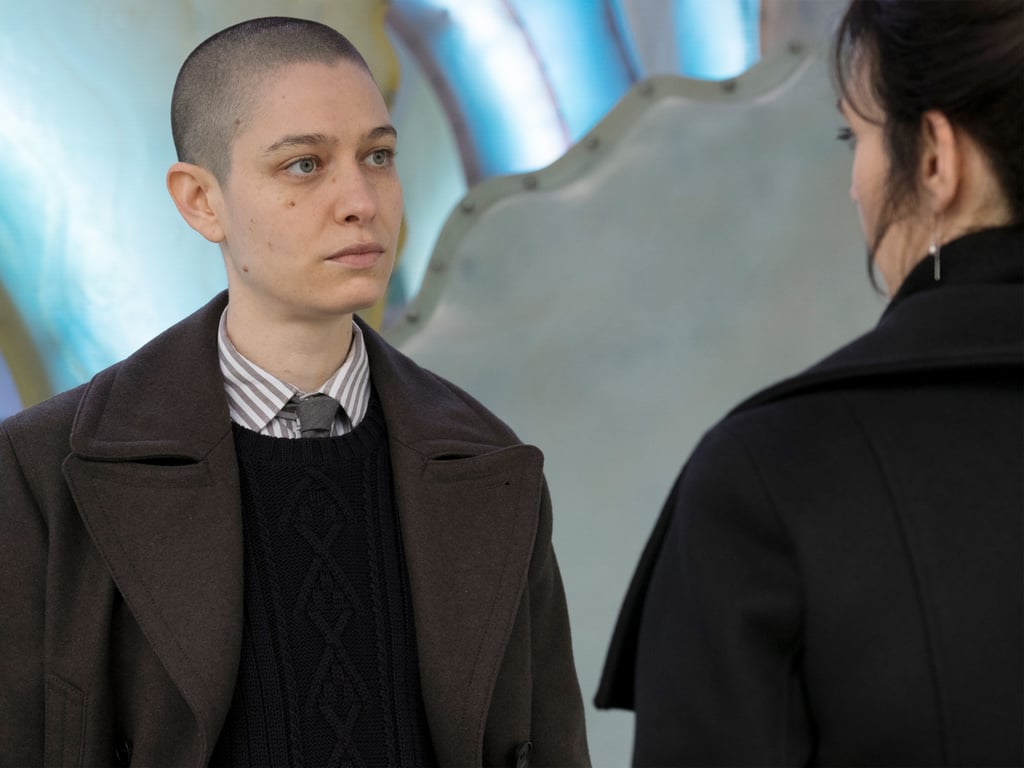
In 2017, non-binary actor Asia Kate Dillon made history by being the first nonbinary actor with a lead role on a major television network [12] with their portrayal of Taylor Mason on Showtime's Billions. What made Billions so great was that Mason was a fully-fleshed-out character, instead of being reduced to a token minority role. In a climate where transgender actors are still struggling to be cast in transgender roles [13], the fact that Dillon is non-binary made their breakthrough all the more important.
Moonlight Wins Best Picture at the 2017 Oscars
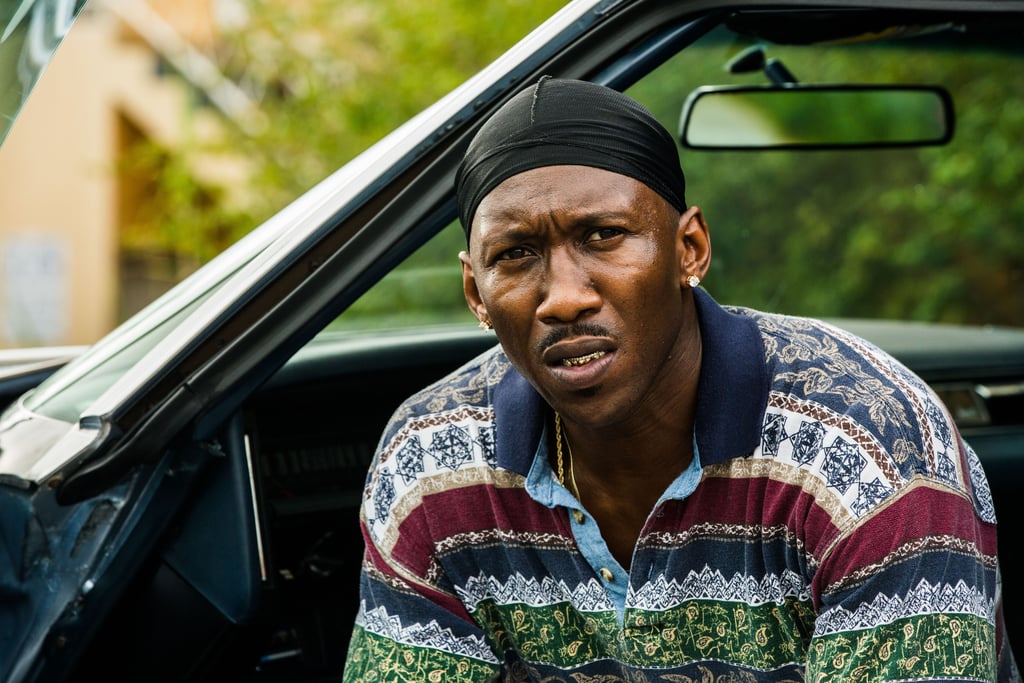
Barry Jenkins' 2017 queer coming of age film, Moonlight, received widespread critical acclaim for its sensitive and nuanced portrayal of Black queer teenagers coming to terms with their identities. The film went on to make history at the Oscars as the first LGBTQIA+ film to win Best Picture, solidifying Moonlight's place in the canon of iconic queer cinema. The fact that a film shedding light on the intersections of a Black queer person's identity and the effect that it has on the community around them managed to win an Academy Award is no small feat. This is especially important since existing media on a global stage with a Black queer focus [14] is still very sparse.
Pose Dazzles Audiences in 2018
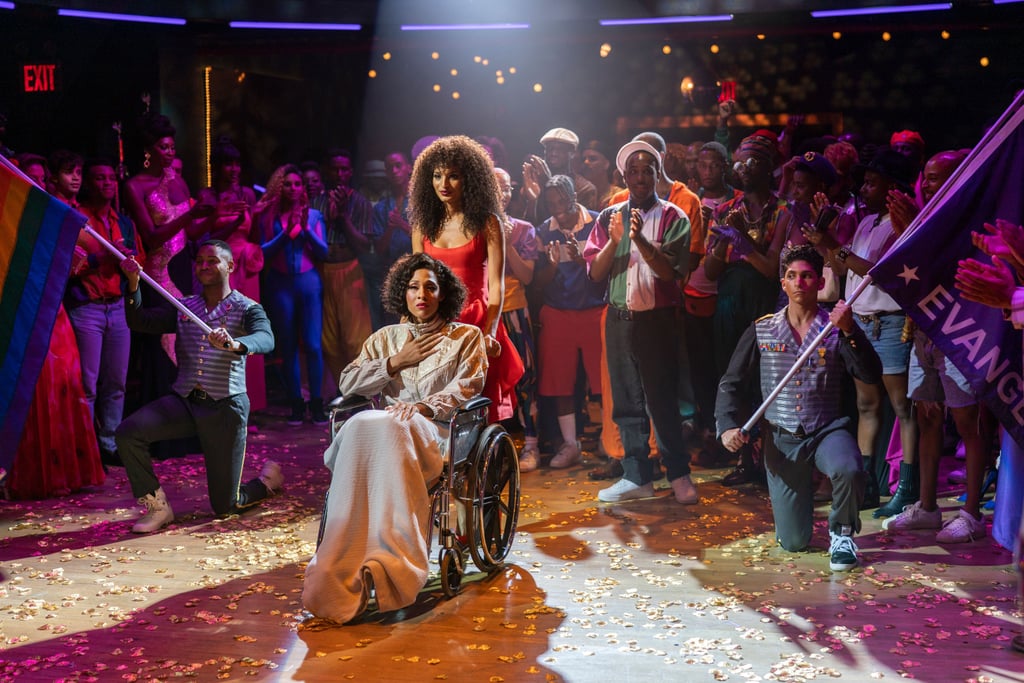
There is no doubt that the Ryan Murphy-produced FX drama Pose has revolutionized TV for the better. Helmed by a power team of trans writers like Janet Mock and Our Lady J, and a cast where all of the central characters are portrayed by queer and trans people of colour, the series is centreed on the New York ballroom scene during the 1980s. Tackling issues like HIV/AIDS, transphobia, and the importance of chosen family, Pose is quality television at its finest and most fearless. The show also earned MJ Rodriguez an Emmy nomination, making her the first trans woman in history to be nominated for an Emmy [15].
Lil Nas X Makes Continues To Make Chart History Well Into 2021
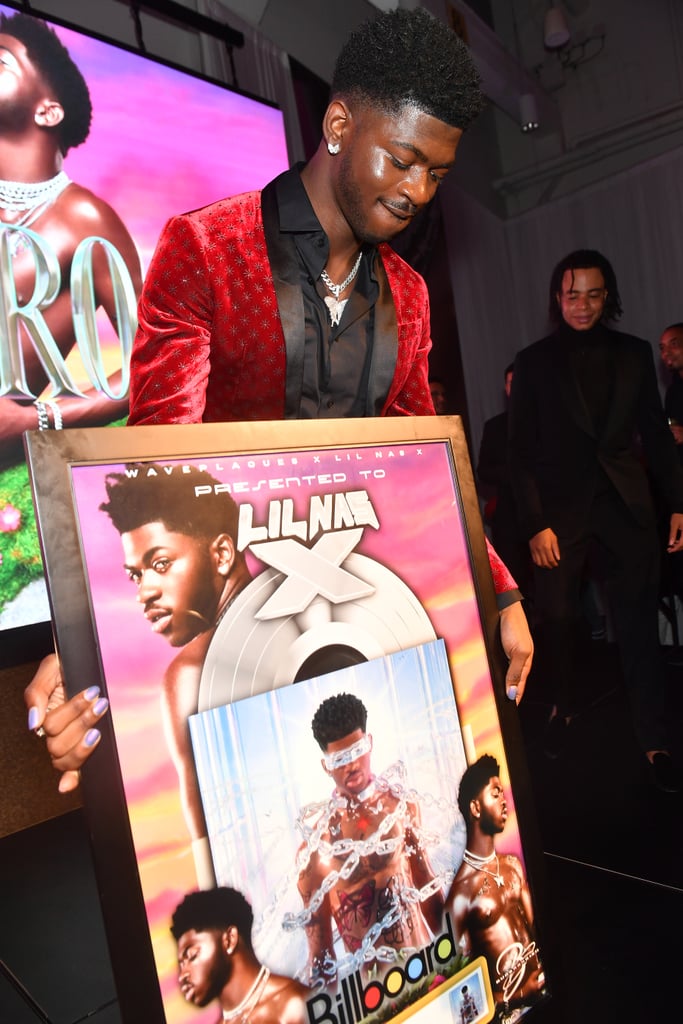
In addition to achieving the longest No. 1 streak in chart history and winning a Grammy [16] for his 2019 viral hit single "Old Town Road," Lil Nas X continued to break records when "Montero (Call Me By Your Name)," the titular single off his recently-released album Montero, rode the No. 1 wave for nineteen weeks. As the first queer rapper and person of colour to achieve not one but two consecutive a No. 1 hits, Lil Nas X is a true trailblazer. Not only that, but his unapologetically queer attitude in both his persona and music has cemented his icon status within the LGBTQ+ community.